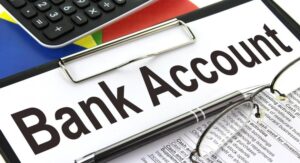How to Open a Bank Account That No Creditor Can Touch?
Can a creditor get into your bank account? How to open a bank account that no creditor can touch? Whether and what a creditor can get access to your bank account. It totally depends on the circumstances. In addition, this condition is also dependent on the state of the law in which you live. For that reason, consult your attorney general.
How a Creditor Gets Access to Your Bank Account?
A creditor needs a court order to get access to your bank account. Without such an order a creditor is not liable to get access to your account. Specifically, a creditor must sue you, take you to court and win the case. In the aftermath of the judgment, the creditor wins the lawsuit.
You don’t have to worry about the creditor get access while the judgment in its favor. Part of this process is, you will be given a court notice and hearing. So, if the creditor sues you, you would know. A creditor cannot have access until that time comes.
If you have federal loans, the federal government does not need to get a judgment against you. Resulting, they cannot get access to your bank account. The government could also get the wage garnishment, social security garnishment, and tax refund to get paid. There may be rare exceptions to this case. That is why it is important to take the advice of your attorney.
Another exception of this case is if you owe money to is the same financial institution where you hold your money. For example, if you have a loan from a particular bank where you at, then the bank can repay the loan from your funds.
Avoiding Frozen Bank Accounts
If you have past due debts, then your creditors can collect the debts directly from your bank account. The creditors can freeze your bank accounts. Even if you able to levy the debts, still you have to suffer some negative consequences.
There are certain steps to be taken to avoid freezing your bank account. And at least make it easy to release funds without any trouble. Here are some ways to avoid freezing your bank account:

Don’t ignore the debt collectors or creditors
First of all, if you don’t want to freeze your bank account, then you must have to take care of the debts. Also, it is known as a bank account levy. If you have a burden of paying debts over your head then set up a payment plan to give yourself time to pay. Federal taxing authorities will work with you on this.
While most creditors file a lawsuit against you before freezing your account. These include government agencies that collect federal and state taxes and other student loans, etc.
Have government assistance funds direct deposited
If an attachment order or garnishment order the bank receives, it must review the account. if the direct deposits into the account include certain government assistance income. It reviews the income such as social security and veteran’s benefits, etc. Other benefits are by this:
- Supplemental Security Income
- Civil Service Retirement System, and
- Federal railroad retirement, unemployment, and sickness
- Federal Employee Retirement System
If you make a direct deposit then the bank can strictly prohibit you from freezing your account. If you receive any assistance in the form of a check which you then deposit into the account, then there are chances of your account can be frozen. The freezing continues until you prove your right to have the funds released.
There is special protection for Social Security Income. Especially if you have money direct deposited into your account. Social Security Funds provide protection even after the funds are received. If you move or transfer the Social Security Funds into different accounts then it will mix with other money. This mixing of money will lead you to inefficient proof of Social Security Income. However, the burden lies upon you to prove the source of funds. This makes the money hard to decipher, is it really the income of Social Security.
Know your state’s exemptions and use non-exempt funds first
Each state provides a law for certain property or income. Bu which no one can take your rights. Even the rights cannot be taken through creditors too. If you are familiar with your state’s exemptions then you can protect your property very well.
Don’t commingle accounts
You should keep a separate account for funds that qualify for the specific exemption from the attachment. It makes it easy to release the account quickly. And you can show the released account show only funds that qualify for an exemption.
If the funds commingle or mix with money that is not exempt, you will have to trace the deposits to prove to the court that the balance which was actually frozen, came from the exempt funds. This procedure is a lot more complex and time-consuming.
Don’t keep your account in a bank that you owe money to
if you owe money to the bank that holds your savings and falls behind on your payment, the bank has the right to set off the funds in your account against the debt. The bank does not need any kind of court order or judgment to do this thing with your account. Keep in mind you do not need to keep your personal account in the same bank.


